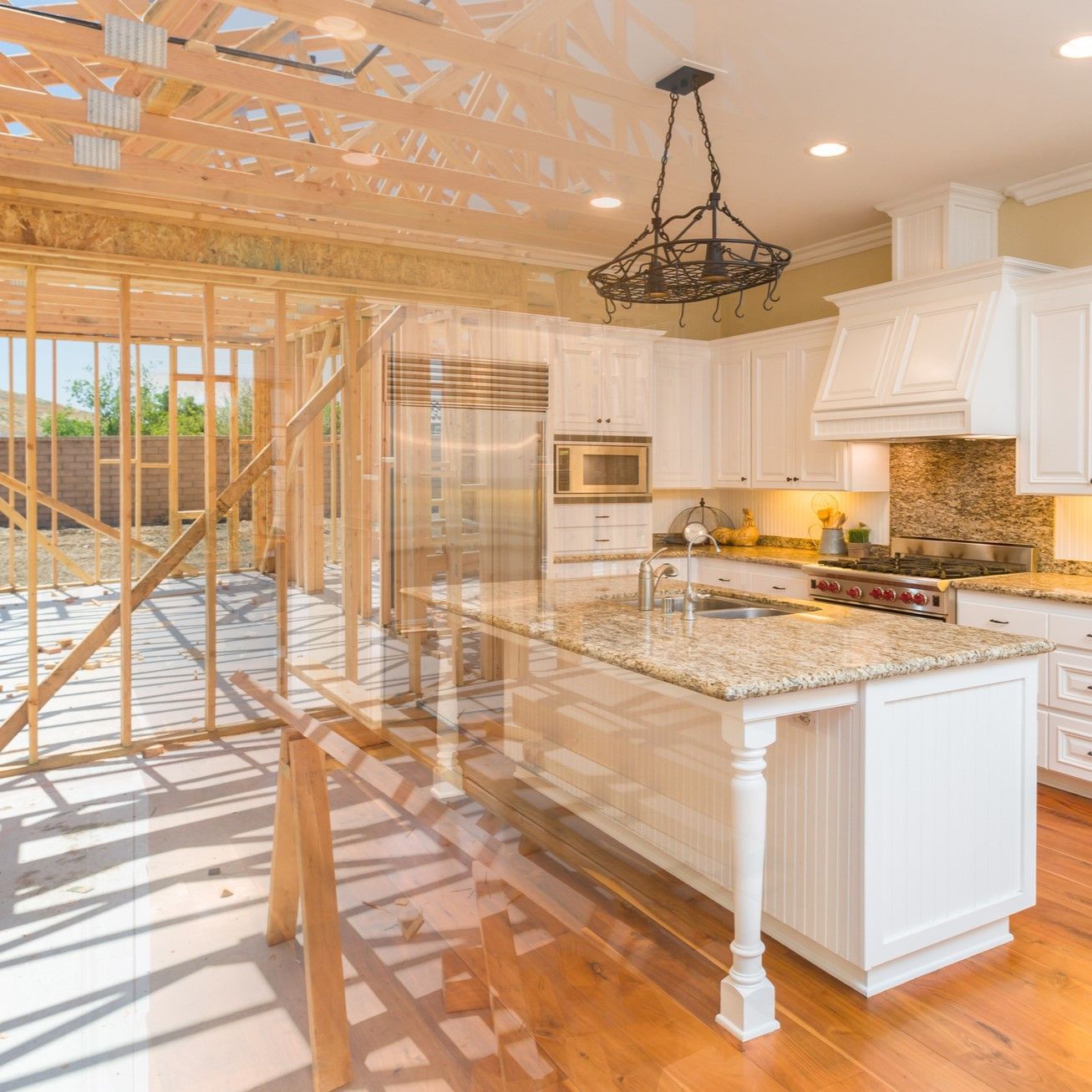Top 5 Factors of a Successful Home Remodel

It may be really enjoyable to rebuild and upgrade your home, and a job well done will give you a great sense of satisfaction.
If properly executed, a great remodeling project will improve your home and make it a better place for your family to live for years to come.
However, the overwhelming majority of people who remodel their homes report having a completely different experience. It's all too common to hear stories about designs and plans that take forever to complete and are never quite right, about bids that are way out of line, about dreadful encounters with contractors who do terrible work, don't show up, demand more money after work started, or abandon the project entirely. The experience for the homeowners is everything but satisfying.
Homeowners caught in these renovation nightmares frequently experience high levels of stress. However, it's definitely possible to ensure that your renovation experience will be rewarding when you prepare yourself and your family.
1. Establish a precise budget at the outset.
2. Ensure that your budget serves as the foundation for the requirements being developed and your construction plans.
3. Choose the best contractor for the work.
4. Minimize stress with proper delegation.
5. Adjust your mental attitude.
Establish a precise budget at the outset.
It's just reality, much of what you can do with your remodel depends on your budget and available funds. Even though they are significant, your needs or desires shouldn't be viewed as the only factor in the decision-making process. Instead, your financial resources (whether you utilize cash on hand, a construction loan, an equity line of credit, or a combination of financing choices) create a "glass ceiling" that restricts your range of options in a way that is separate from and superior to your needs and wishes. There are two ways homeowners can mess up their remodeling plans by failing to prepare on a firm budget:
1. Some argue that there is no use in creating a budget because they are unsure of the price of the items they desire. Instead, they gather estimates to obtain a feel for the associated expenditures. Starting with the perspective of "how much money I need" isn't the best way to choose a contractor for your job.
2. To make up for a deficit in available finances and close the gap between what they can currently afford and the project's cost, some homeowners "bank" on revenue that will come in during the project. This is a problem since it is feasible for revenue to fluctuate, cost overruns, which are all too common, would widen the disparity and make affordability a moving objective and a surefire way to find yourself depleted of funds before the project is complete.
Instead, always start with the budget you have or can afford to work with and work backwards from there.
Make sure your budget serves as the foundation of your construction plans.
Even if a budget was established before the design process, when the proposed project's plans and specifications are created, homeowners frequently allow designers and architects to create plans based on what they would want to have rather than what they can afford. Actually, homeowners aren't always at blame in this situation. When homeowners inform architects and designers of the desired budget range, their designs frequently "overshoot" and "overreach," resulting in plans the owners cannot afford to build. This is because architects and designers may not always be up to date on real-world construction costs and their default mode-of-operation may be to produce the most spectacular plans possible.
So that there are no ambiguities, we advise always incorporating the homeowners' budget guideline in the design contract language and establishing the architect's or designer's facility with actual expenses if possible.
Only consider individuals that have a track record of success and relevant experience. Make sure the company has been doing the sort of project you want done and has years of experience, specifically in the area of your home. Some companies refer to "years of experience" but if a General Contractor has been opening and closing multiple businesses through the years... you have to ask yourself why. Did they have poor reviews? Complaints? Years in business is often a better determiner.
Choose the best contractor:
This is one of the largest mistakes made by homeowners. You should call for at least three quotes. Most homeowners choose the cheapest of the three... the cheapest price doesn't make them the best choice. Often, a low bid initially doesn't always mean the lowest cost in the long run. If the price seems too good to be true, it probably is. Don’t let price be your primary factor. Prior to considering price, you should choose contractors based on criteria such as quality, expertise, and experience.
So, how do you go about doing that? Create a large list of potential applicants first, take recommendations from people you can trust who have already done what you're planning, visit Houzz, Yelp, and other review sites. Narrow your choices down to your top 3-5 contractors. Here's what we recommend:
1. Years in business: Look at their track record. CConsider organizations with the longest duration from your list of contenders. In general, expertise is more crucial to the success of your work the more complex your project is. For instance, a whole house makeover or the installation of a second story requires a more skilled contractor than a simple bathroom remodel. Make good judgments.
2. Track record: Despite having been in business for a while, a company may not have consistently followed through on its commitments or been kind to its customers.
Therefore, it is crucial that you cross off any organization with a spotty past from your list of potential hires (why take a chance when you can choose better?). View the BBB rating of the business.
An approach to see a company's history from the perspective of its customers is to look at its "Company Report" from the Better Business Bureau. Consider choosing businesses with an A+ rating from the BBB. Ensure the license status of each business as well (use the CSLB website). Verify that it is up to date, active, and unblemished by citations or other disciplinary actions.
3. Achievement leaves traces; if a business had been there for a while and was excellent at what it did, someone would have noticed. Certainly the homeowner! Certainly omit from your list any businesses having a dubious history.
4. Verify: request references and check up on them. We advise contacting each reference and going to at least one completed project. Consider the work's quality to see if it meets your standards for quality.
Now that you have a narrowed list of professionals to consider, you can consider pricing. At this stage, all the businesses on your list should be excellent to work with.
Minimize stress with proper delegation:
Starting a significant remodeling project is already stressful enough. You should make an effort to reduce your stress whenever and whenever you can. Homeowners frequently disperse their project more than is necessary or wise. While using a general contractor, they hire certain trades on their own to reduce costs (supposedly). Sometimes they use a specific tradesman they have worked with for years rather than the general contractor because they are familiar with him and have known him for years. They act in danger to themselves!
A GC will maintain a clear view of the "big picture." His choices and decisions will be guided by his awareness of what's happening, which will help him complete the project successfully and with the least number of oops as possible. Regarding a single trade contractor operating independently of the "general," the same cannot be claimed. This is why we don't recommend being your own GC. General Contractors who have been in the industry for years, as we suggested and since you have properly followed the above steps, your GC will certainly have their preferred list of contractors. Subcontractors specialize in specific trades. Trying to vet each trade can be tricky, so it's best to vet a GC who has already worked with their subs.
DIY homeowners are left "carrying the bag" when things go wrong (it's a "when" and not a "if" situation). Every time more than one company is in charge of the task, no company is in charge of the work! The only response the owners ever get when there is a problem is, "It's the other guys' fault," (referring to one of the other businesses engaged in the work). The outcome? The owners either have to pay for the necessary repairs or put up with an issue they could have prevented. Having a GC resolves a lot of potential headaches.
Adjust your mental attitude:
You should mentally frame a difficult task in a favorable light and get yourself ready for it. Numerous decisions will need to be made, your spouse may not always see things your way, there will be plenty of noise and dust, power and water supply interruptions, and mistakes will be made (as they always are when people are at work). Your experience will be determined by how you respond to these things.
You will be miserable if you become extremely angry, aggressive, argumentative, and critical of everything you see. Instead, train yourself to "take things easy," to enjoy the experience as an adventure, to provide compliments to others when you notice something they are doing well, and to whenever feasible, confer with your spouse and your team (the foreman, the supervisor, the contractor, and the designer). You'll discover that everything is now more gratifying, empowering, and pleasant.
Recent Blog Posts








